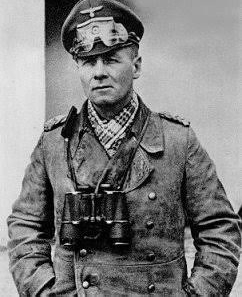What if Erwin Rommel had not met his tragic end?
What if Erwin Rommel had not met his tragic end? If Erwin Rommel had not met his tragic end in 1944, several potential outcomes could have emerged, though they are speculative. Rommel, known as the “Desert Fox” for his military tactics in North Africa, was a highly respected figure within both the German army and among his enemies. Here’s a breakdown of possible scenarios if Rommel had survived the events that led to his forced suicide:
Post-War Role in Germany:
If Rommel had lived and possibly distanced himself further from Hitler and the Nazi regime, he could have played a significant role in post-war Germany. As one of the few German military leaders who retained his honor among both Germans and Allied forces, Rommel might have been involved in rebuilding a devastated Germany or could have become a figure of unity. His reputation as a brilliant, non-ideological commander may have made him a stabilizing force in the transitional government, possibly in West Germany.
Resistance Against Hitler:
Rommel was implicated in the July 20 plot to assassinate Hitler, although the extent of his involvement is debated. If he had lived, his potential support for the German resistance could have become more pronounced. His survival might have emboldened other military figures to push for Hitler’s overthrow, possibly leading to an earlier end to the war. This might have mitigated some of the destruction Germany faced in the final months of the conflict.
Military Leadership:
Had Rommel not been forced out of his position, he could have continued to influence the course of the war in Western Europe. By 1944, Rommel was deeply involved in planning Germany’s defense against the Allied invasion. If he had been present to continue his leadership, it’s possible that he could have delayed or altered the success of the D-Day invasion. However, given Germany’s deteriorating situation, his impact would likely have been limited by the overwhelming Allied advantage.
Legacy and Memory:
Rommel’s tragic end in 1944 allowed him to remain a relatively untainted figure in post-war German and international memory. If he had survived, his legacy might have become more complex. For example, if he had taken part in further military actions or political decisions in the war’s final stages, his reputation could have been either enhanced or damaged depending on those outcomes. His post-war leadership in a divided Germany could also have affected how he was remembered.
Political Leadership:
After the war, Rommel might have entered politics, either in Germany or potentially in some advisory capacity under Allied occupation. Given his anti-Nazi sentiments, he could have become a key figure in post-war reconciliation efforts or played a role in the creation of the Bundeswehr (the West German military).
Conclusion:
Rommel’s survival would have led to a fascinating series of possible outcomes, from shaping post-war Germany to influencing the war’s conclusion. His death in 1944 cemented his legacy as a brilliant but tragic figure, untainted by direct association with Nazi atrocities, which might have shifted had he lived longer.


